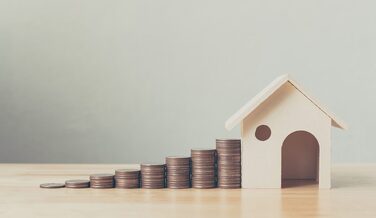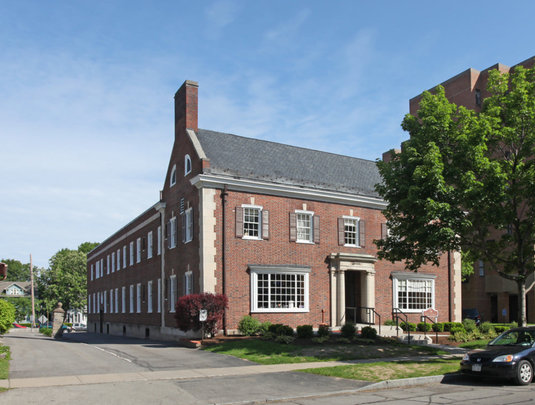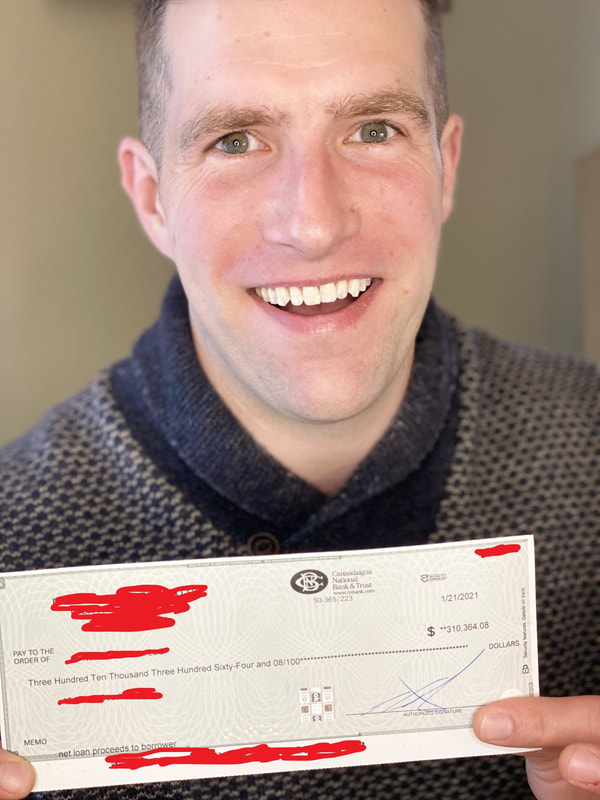 This subject might be a little off topic from the usual real estate subject matter, however, I thought it important to share my own personal development in the wake of loss. February 26th, would have been my Dad's 69th birthday. For those of you who don't know, my Dad Mike Drouin died unexpectedly from a heart attack in August of 2012. He was a hero and leader to our family and community. Unfortunately, Dad isn't the only death that has happened to a close family member. My Mom, Debra Drouin passed away from an extended battle with cancer in 2003. My grandfather, Roger Drouin (pictured here on the right) got hit and killed by a narcoleptic man driving a work van while walking in his own neighborhood. Death has taught me some very invaluable life lessons: 1.) Live with no regrets. Your dreams cannot wait for a convenient time. You need to start working towards them TODAY AND EVERYDAY. You need to live with a sense of urgency. When my mother knew she didn't have long to live, she decided to live out her lifelong desire to travel Europe. And she did so with my grandmother Ruth. She was incredibly weak and had to use a cane to get around. It was a struggle for her. For those of you who have traveled to Europe, it's not exactly a friendly place for people with mobility issues. If it wasn't for her sense of urgency, she might have never gone. You shouldn't have to wait until your twilight to do what you actually DESIRE to do. 2.) Never go to bed angry at someone. You are bound to get into arguments and squabbles with people you love. If you walk away from someone, imagine if they died or you died. Did you have the opportunity to reconcile with them, or apologize, or tell them you loved them? At my fathers funeral, someone close to him was there who was terribly sad, sobbing uncontrollably. I knew why. The last time they saw each other was on very bad terms. They had an argument about something incredibly stupid and left each other in bitter anger. So remember, when you say goodbye to anyone, make sure you do it graciously. Tell them you love them because you might never get a chance to do so again. I hope this insight finds you well when dealing with loss of a loved one!
1 Comment
As real estate professionals, we have been getting asked this question A LOT lately, by home owners and real estate investors alike. You've probably heard that historically low interest rates and low inventory have been driving the real estate market higher, not just in Rochester NY, but across the entire country! So this begs the question, "when will we hit the top of the market?"
Well.. in short... not any time soon. Here's why:
"NO INVENTORY!"

The law of supply and demand apply to all markets and their subsequent pricing. Demand has remained strong in Monroe county, not due to an incredible influx of population or a booming local economy but due to creation of new house holds. It's essentially "butts moving seats." Millennials move out of roommate situations and purchase their own homes to get their own space. When that demographic group purchases a home, the family that is selling their home to the first time buyer usually buys another home, which creates demand up the entire real estate food chain. Typically what alleviates this market inefficiency in most markets is supply will be stimulated through rising prices. This is true to most markets, but real estate has an incredibly long lead-lag time. The risk associated with developing new housing, the meteoric rise in the cost in materials, restrictive local zoning laws (which also artificially stem new housing development) have rendered the construction of new housing extremely cost prohibitive. And even with the rise in pricing of existing single family housing we've seen recently, home prices are still trading at a considerable discount to replacement cost.
Incidentally, supply of existing single family homes is actually down quite considerably from last year. In January 2020, there were 950 homes put up for sale in Monroe County. In January 2021, 622 homes! Supply down almost 35% according to data from InfoSparks, a real estate data platform that aggregates housing market data.
Housing Is Still Very Affordable
Because of the lack of supply, you can see how market pricing has been affected in the chart below. The median price has increased from $155k to $173k, an 11.6% increase in just one year. The main reason we believe that prices will continue to increase is, even at these elevated prices, housing is still remarkably affordable in our market when you compare it to national housing affordability metrics.
The Factor Of Area Median Income
According to Census.gov, the 2019 Monroe County Area Median Income (AMI) is $60,075 per household. Even with median home values at $173k, housing is still a bargain! On average American households spend between 30%-40% of their income on their housing costs. Keeping no more than 30% of income allocated to housing costs will ensure a home buyer doesn't become "house poor" or housing cost burdened. 30% of AMI is about $1500 a month in Principal Interest and Real Estate Taxes before a household would start to become financially burdened. If the average Monroe County resident bought a $173k house, put 5% down and locked in at today's 30 year interest rate of 2.962%, their monthly mortgage payment would be $688 month. At an average tax rate of $36.25 per $1000, the real estate taxes would be $522 a month (this could vary by town, but we used the average for demonstration purposes). Total monthly payment? $1201 a month or 24% of AMI. In order for monthly housing costs to be in line with 30% of AMI, or $1501 per month, housing in Monroe county would need to appreciate 24% to be in line with what average financially conservative Americans spend on housing!
Rising Interest Environment Not Likely

Obviously, rising interest rates could have a hand in tempering a rise in housing prices, but with the Federal Reserve Bank's (The Fed) continuing quantitative easing (QE), a rising interest rate environment does not seem to be likely any time soon. Keeping unemployment low is one mandate of the Fed but it's not the only mandate. So, what about inflation leading to rising interest rates? Significant inflation does not seem to be on the horizon either. With the world reeling from the affects of COVID-19, global financial markets have kept their flight to safety in buying bonds denominated in the worlds reserve currency, the US dollar. Furthermore, our friends in China help keep interest rates and inflation low by maintaining themselves as a huge buyer of our debt too.
The Bottom Line
If you are considering buying a home or investment property, don't wait on the sidelines trying to time the market, because you may end up paying more for it later.
A special word of caution for real estate investors. Do not buy on speculation of future appreciation. Only buy based upon good current fundamentals: a good location and cash flow based upon REAL NUMBERS, projection of actual rents based upon market rents of comparable product and factoring in adequate expenses for vacancy, collection loss, property management fees, realistic repairs and maintenance, and capital expenditures. I have been seeing a lot of irrational exuberance among real estate investors not using realistic financial projections. So be patient, but strike quickly when opportunity knocks! *** Disclaimer: I am not an accountant, lawyer, or financial advisor! You should consult with a qualified professional before acting on any of the opinions shared in this post!!! ***
Self directed IRAs have become very hot among investors with the rise in popularity in alternative investments such as real estate, gold, and cryptocurrency. They allow retirement account owners to invest money in assets that your traditional IRA or 401k would not. Typically they have been restricted to Wall Street type products like stocks, bonds, and mutual funds. Typically around this time of year, investors are looking at maximize their retirement account contributions before the April 15th tax filing deadline. Something really stupid I have seen people doing is buying real estate using their Self Directed IRA. It's stupid for a multitude of reasons, here's why: 1.) Real estate is illiquid. Retirement accounts are illiquid (at least until you reach an age to start taking distributions.) Why would you want to double down on the biggest risk involved with real estate, liquidity risk? Besides, I am not even a fan of tax advantaged accounts like IRAs and 401ks because you cannot do what you want with your OWN money. I value being nimble and having options. This scenario is very restrictive. 2.) Lack of leveragability. One of the best parts of the real estate asset class is that it is a hard asset. Banks love hard assets as collateral and therefore allow you to leverage them. Which means you can buy and control a $100k for $20k essentially or whatever your bank will allow you to do. This allows you to scale multiples on your net worth over time. For example. Let's say you buy a property for $100,000, all cash, no leverage. Let's say that property appreciates 3%, pretty average for Rochester, NY in good locations. Let's say you sell that property for $103,000. That $3000 return on investment yielded you 3% return on your money. Now, lets say you buy that same building and put bank financing on it. So you put $20,000 down and have your bank put a $80,000 mortgage on it. The property appreciates 3% or by $3,000. $3,000/$20,000 = 15% return on investment. Plus you can buy 5 properties using that same type of leverage; much better for building your long term wealth! With Self Directed IRAs (SIDRA), you cannot use bank financing in this way. Why not? Because most bank financing requires personal guarantees, something strictly prohibited by the IRS in Internal Revenue Code Section 4975, therefore precluding you from using leverage. There might be come convoluted ways in which to get around this but at the end of the day usually doesn't make sense. 3.) Lack of tax benefits. Yes, SIDRAs and other tax advantaged retirement vehicles have tax advantages in their own right but it ends up stripping out one of the greatest part of owning investment real estate, depreciation! Depreciation is an expense that you take "on paper" each year you own a piece of investment property. When you own desirable real estate assets in great locations, you pay for it. You usually have a higher cost basis when you buy great property. You can take a certain portion of that basis as an expense each year. Often times that expense synthetically wipes out positive cash flow while you own the property. Assuming a dollar today is worth more than a dollar tomorrow (it's a fact, look up "Time Value Of Money"), the less you pay in tax today, reinvest those tax savings, it's quite simply explosive to building your net worth over time. So now that I've thoroughly trashed buying real estate with your SIDRA, you should know some tactics on how to use your SIDRA to grow your real estate business. One tactic that is my favorite is making loans out of my SIDRA. Loans that are backed by real estate. You can make loans out of your SIDRA with interest rates and terms more attractive than typical private or hard money. Why would you do this? Relationship building. If you have a reciprocal relationship with another investor with a SIDRA, you can loan them money to help them grow their real estate business and they can lend you money to help you grow yours, without the crushingly brutal rates of some hard money lenders. Another way to invest is by investing in an LLC or special purpose vehicle as a limited partner (silent partner) and partnering with the managing person of that LLC in exchange for an equity stake. Again, it would still be best to do this not using your retirement accounts for reasons stated above, but if it's the only way for you, it's the only way! The only caveat is to make sure that whatever bank financing that investor is using will allow your IRA to own membership interest in that deal without having to sign a personal guarantee. Usually you can avoid personal guarantees by having your IRAs membership interest at 19% or less in that LLC. What are your thoughts on this? Do you invest in real estate with your SIDRA? BRRRR! BRRRR? Yes it's cold outside, but BRRRR is a widely used strategy used in the world of investment real estate. It stands for Buy, Rehab, Rent, Refinance, Repeat! It is a strategy that allows developers to grow their portfolios exponentially over time and recycle the same investment capital over and over again. This is how you can build a real estate empire essentially without access to cash being a bottleneck to your growth.
OK, now story time: About 3 years ago, I got contacted by a real estate broker about a commercial property he was going to be listing in an area where we own property. When I asked him the price, my jaw dropped. The price was $1 million dollars! All those zeroes and commas! I have to tell you I ,was intimidated. We knew the property was worth a million but I offered $947,000 because, well, we were more used to 6 figures. The seller immediately countered at $1,000,000. So I contacted my lender and asked if they could do 80% LTV and a 25 year amortization to make the numbers work better. (We had a required on cash on cash rate of return of 11%, and the only way to conservatively get there was by having the lender do a policy exception. They usually only do 75% LTV, 20 year amort or 80% ltv, 25 year amort.) Due to our relationship, they said "yes" and made a policy exception. So I was going to need $200k for down payment, and $100k for closing costs, operating capital and some capital for some property improvements. $300k, which I didn't have... After getting the property under contract, I quickly got to performing due diligence and putting together my pitch deck to start raising the capital, another thing I never did before. I was used to presenting opportunities to lenders so I took the same approach to presenting to potential equity investors. Believe me, I was sweating. Especially after I put $50k in earnest money down. Yada yada yada, so last week, we just closed the cash out refinance and I took home a darling check for $310,000, which was pretty cool to see in my bank account for 2 seconds before I wrote a check for $300k to pay my investors back! Now that I have your attention, if you want to review the very long winded manner in which we pulled this off, continue to read below. If you are happy with the yada yada yada version, you can stop here, mask up and give me a virtual (covid friendly) high five! Raising the $300k was a lot easier than I anticipated. Why? 1.) The asset was in a great location. 2.) The projected numbers were very conservative; income conservatively low, expenses conservatively high; so the investors knew that I wasn't B.S.ing them with pie in the sky financial projections. 3.) The asset was 100% occupied and had history of strong occupancy. The business plan was simple: raise rents to market value as leases expired (they were drastically under market based upon our market survey and the fact that it seemed to always be at 100% historical occupancy), and normalize expenses. The expenses were abnormally high. Utilities were God awful high and the management company had a maintenance employee stationed there for half the day, every day. AND they were paying for their snow removal company to salt and shovel the sidewalks to the tune of $10k a year. These were just a few items of financial waste discovered. During our due diligence: 1.) We found that 20 hours a week was not necessary for a maintenance employee on a 20,000 square foot building. The management company swore that he was needed there... and the tenants loved him... and he would be sorely missed if he wasn't there everyday. Through right sizing and only having maintenance there on an as needed basis and for proactive trips, we were able to save $20k per year! 2.) In analyzing the utility bills with my energy consultant (shoutout to Enlightened Energy!), we found that the electric usage was just as high during the winter as it was during the summer. This didn't make sense. It was normal to be high during the summer with the usage of air conditioning with the expectation that the usage would taper off in the winter. The building was heated by steam during the winter. When we dug into it further, we found that the air handlers for the A/C units were not shut down at the end of each cooling season. Tenants had thermostats in their office suites that they had set at 68 degrees. The building wide thermostat for the steam heat was set at 70 degrees! So imagine that, the A/C and the building steam were fighting with each other the whole winter! Furthermore, we found out that the management company maintenance person had the pressure for the boiler dialed up so high that the whole steam system was packed with a head of steam (at all times!), so that the individual tenants had on demand steam. By the way, this is not way steam heat systems work. This was not only wasteful from an energy perspective, but it was also putting undue stress on the newer $50k boiler that was installed by the previous owner! Through a small investment in an energy consultant and having them integrate real time energy management, we were able to save about 30%, or $10k per year. 3.) I put the snow removal out to bid and we found a company to do it all inclusive, unlimited trips, and snow shoveling for $5k per year. $5k in savings. 4.) By increasing rents up to market as leases expired, we were able to push the annual revenue to $225k from $198k. After executing this plan we were able to squeeze an additional $60k per year in NOI (Net Operating Income)! In order to capitalize on the low interest rates and positive lending environment, we jumped on getting the asset refinanced. The property reappraised at $1.4 million so we were able to refinance and pay our investors back. Now we have an appreciating asset that cashflows over $40k per year! Now we're looking for our next $1,000,000 BRRRR deal in Rochester, NY so if you know anyone who owns commercial property in a great location please think of us! Or if you'd like to invest with us, get on our distribution list here to learn about our next opportunity! |
AuthorThis blog serves an an outlet for all of our invaluable team members to share their insight on development, property management, and all things affecting real estate in our community. Archives
July 2023
Categories |



 RSS Feed
RSS Feed